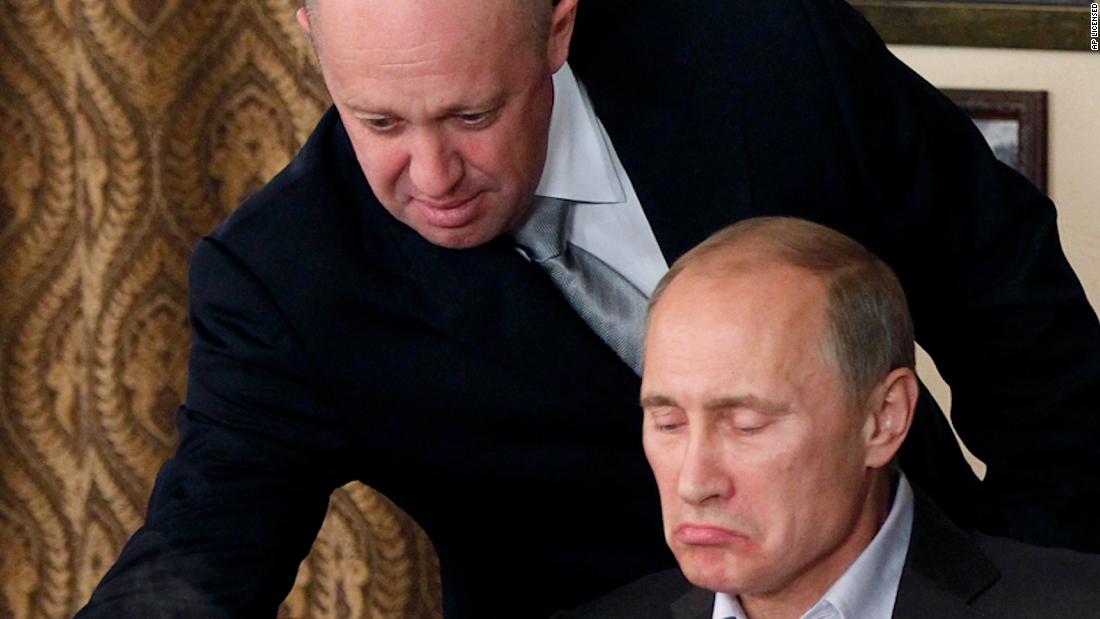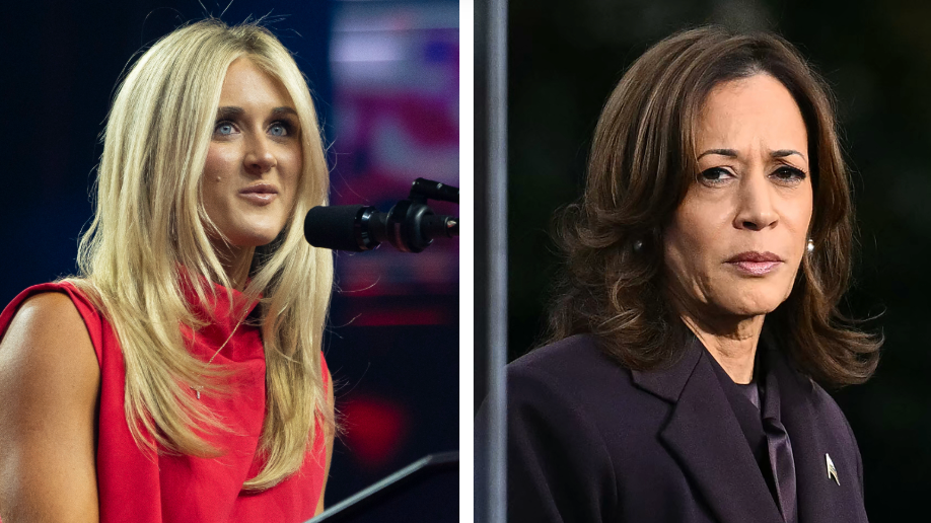- by foxnews
- 28 Nov 2024
As dust settles after Wagner mutiny, Russia's military leaders face tough questions

The Kremlin has gone to great lengths to reassert President Vladimir Putin's authority, with meetings and events designed to show the unity and solidarity of the state and the military under his leadership.
But in the minds of many commentators, it won't be easy to draw a line under the extraordinary events of the weekend, and questions will linger about the performance, willingness and even the loyalty of some Russian units.
While the Russian military leadership was glaringly absent as the crisis unfolded, it was Chechen units that prepared to confront the Wagner units strutting through the streets of Rostov-on-Don, and other Chechen units were filmed guarding a bridge on the southern approaches to Moscow.
That has not been lost on the community of Russian military bloggers, especially in light of unconfirmed reports that Defense Minister Sergey Shoigu had abruptly left the Rostov-on-Don area on Friday as the mutiny began to froth in the region. Some Russian military bloggers with substantial followings expect a serious reshuffle of the military in the light of the Wagner uprising, and perhaps within the security services for not seeing the preparations for it.
One popular blogger going by the name Rybar wrote Wednesday that a purge was already underway and had affected mid-level commanders who had declined to shoot at Wagner columns where civilians might get hurt.
"For several days now, investigators and representatives of the FSO (Federal Guard Service or Federal Protective Service) have been working both on the leadership of military command and control bodies and on unit commanders," Rybar claimed.
He also suggested that while the Chief of the General Staff, Valery Gerasimov, remains formally in charge of what Russia calls the "special military operation" in Ukraine, the commander of airborne forces (VDV) Colonel General Mikhail Teplinsky is actually running the war.
Teplinsky is well regarded by subordinates, according to observers, but the VDV endured heavy losses in the opening phase of the invasion.
There is no way to verify Rybar's allegations, but their airing may demonstrate a level of apprehension in the Russian military in the light of the mutiny.
Another well-known blogger, Boris Rozhin, wrote that "one of the positive aspects of June 24 may be that the authorities will be cleansed of disloyal and unstable personnel."
Speculation persists about the role of other senior commanders as the mutiny got underway on Friday night and into Saturday.
The New York Times reported Wednesday, citing US officials who it said were briefed on American intelligence, that the commander of the Russian air force, General Sergey Surovikin, "had advance knowledge of Yevgeny Prigozhin's plans to rebel against Russia's military leadership."
Asked about the reporting on a regular call with journalists, Kremlin spokesman Dmitry Peskov said: "There will be now a lot of speculation and rumors surrounding these events. I believe this is just another example of it."
Some observers think US officials have a motive for trying to discredit Surovikin, whose performance in the campaign has outshone that of most commanders. Mark Galeotti of Mayak Intelligence said: "Surovikin is not a nice man but he is a dangerously competent general."
While acknowledging he is speculating, Galeotti added: "Suggesting complicity with Prigozhin's treachery - to use Putin's words - would seem a good way of helping derail his return."
Others think Surovikin would have been too smart to back a mutiny that clearly had no chance of success.
One acute observer of machinations within the Russian establishment, Tatiana Stayonova, tweeted Wednesday: "The mutiny lacked clear political objectives or proper preparation. It seemed like a desperate attempt by Prigozhin to protect Wagner, with a potentially fatal end in Moscow. While Surovikin might have been sympathetic or privy to the plan, he sided with the state when necessary."
Rob Lee of the Foreign Policy Research Institute notes that Surovikin is the commander of the Russian Aerospace Forces, and "Wagner shot down 7 or more aircraft, including several aircraft that weren't armed. Strange thing to do if the commander of the Russian Aerospace Forces was actively supporting you."
Surovikin indeed issued a video appeal to Prigozhin to cease the mutiny very soon after it began, one of very few military voices heard at the weekend.
The purge may extend beyond the military. State Duma Speaker Vyacheslav Volodin has demanded an analysis of who tried to fly out of Russia at the weekend.
"We all condemn those who, at a difficult moment for the country, left it, fled. It really should be punishable, among other things," Volodin said.
Anastasia Kashevarova, a military journalist who has covered the conflict, underlined the point. "Do not fly away and leave your citizens and country. Do not run away and be silent, and then beg for rewards for yourself," she wrote on Telegram.
Any institution as vast as the Russian military is going to have rivalries and grudges, especially when in the middle of a war where so many inadequacies have been exposed.
As Stayonava says: "By the start of Prigozhin's mutiny, it was well known about an established split between the military leadership of Shoigu/Gerasimov and Surovikin, not so much a power struggle but a divergence in the understanding of Russia's Ukraine strategy."
Surovikin on several occasions appeared to be trying to keep a working relationship with Prigozhin, whose fighters were after all taking most of the punishment in the assault on Bakhmut.
At one point, according to Russian military bloggers, Surovikin interceded to try to procure ammunition for Wagner.
"This relationship was likely approved by Putin, suggesting this divide was not a rebellion," says Stayonava.
Tolerance of and support for Wagner within the military (and among some regional governors) was to an extent a coded way to express no-confidence in Shoigu and Gerasimov.
Now that dynamic has dramatically changed, according to Stayonava.
"The question remains whether those who report to Putin these days could tarnish the image of such sympathizers, transforming them into conspirators for the purpose of potential purges against them."
For now, at least, the seemingly unsinkable Shoigu has survived and was shown in a video released after the weekend at the combat headquarters of the Western Military District (though the visit may have been last week), as well as sitting two seats from the president at a meeting on Monday night.
As for Yevgeny Prigozhin, the day when he was master of ceremonies at a summit between Putin and President George W Bush in St. Petersburg must seem a lifetime ago. His former promoter has now stressed that no stone will be unturned in ending his flamboyant career.
Putin said Tuesday that Prigozhin's business empire had received well over $2 billion from the Russian state in the past year, which had "fully funded" the Wagner operation.
He pointedly said that "the owner of the Concord Company" had received the equivalent of $936 million for delivering and catering food to the Russian military, before adding with menace: "I hope nobody stole anything or stole as little as possible in the course of these operations, but we'll be thoroughly investigating all of that."
The implication is that while Wagner fighters have been forgiven and many will be integrated into the Russian military, Prigozhin will be an outcast, eking out retirement in Minsk, in neighboring Belarus. He may never be charged with armed rebellion but his for-profit model of fighting a war is about to be undone.
The Institute for the Study of War commented Tuesday that the effort to distinguish between Prigozhin and his fighters may enable the Kremlin to "accuse Prigozhin of corruption or conspiring with Ukraine or the West and alienate Prigozhin from Wagner personnel" that the Kremlin wants to keep in the mix.
"The Kremlin needs to separate Prigozhin's cause from his persona, lest an attack on Prigozhin be perceived as a Kremlin attack on his popular narrative and his stated objectives of punishing the criminally incompetent Russian MoD leadership," says the ISW.
There is still considerable respect in Russian military circles for what Wagner has contributed to the Ukraine conflict.
Even as the dust settles, some are asking how the feud between Prigozhin and the Defense Ministry was allowed to escalate to the point of mutiny.
Among them is the director of the Russian National Guard, (Rosgvardia), Viktor Zolotov.
While he claimed the mutiny was prepared by Western intelligence services, he also said there were hints - what he called "information disseminations" - coming from Prigozhin's side "that this mutiny was being prepared."
"The entire Rosgvardia personnel, the entire force unit worked brilliantly - clearly, coherently and competently," Zolotov claimed, perhaps an unstated contrast to the Defense Ministry.
Blogger Boris Rozhin said on his Telegram channel: "If the conflict between Prigozhin and the leadership of the Ministry of Defense had been stopped in a timely manner, the rebellion would hardly have taken place."
Anastasia Kashevarova, who has 269,000 Telegram subscribers, also asked: "If we knew, why didn't we prepare? So if [Prigozhin] works for Ukrainians, why were they (Wagner forces) pardoned? Why did they pass through the border checkpoints calmly? Why wasn't it prevented?"
Rozhin, like others circling the wagons, is doing his best to spin the events of June 24-25 as a catharsis, saying the main achievement is that Russia "did not begin to find out who is stronger and who could kill whom more. We have a real enemy, on whom efforts should be directed."
Others might argue there's still no guarantee of that.
- by foxnews
- descember 09, 2016
Mom's message in a bottle found by her own daughter 26 years later
A fourth grader went on a school trip when someone found a message in a bottle containing a letter that was written by her mom 26 years ago. The message was tossed into the Great Lakes.
read more


